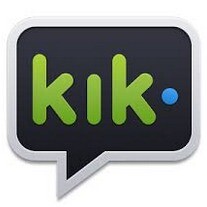Click here for 7 (More) Risky Apps Parents Should Know About
The other day I was driving home when I heard my cell phone buzz on the seat next to me.
When I got home, I was surprised to see who the text was from. It didn't come from my wife, or my mother, or even a close friend.
The message was short and simple: "Hey, Brother Bishop. It's Alex."
Alex is a 14-year-old boy in my ward. (Name has been changed here.)
Because I serve with the Young Men in my ward, I get text messages from them all the time to help plan activities, schedule meetings, or send reminders. So today was nothing new.
Except for one thing:
I was pretty sure Alex didn't have a cell phone.
How was he texting me?
How was he texting me if he didn't even have a cell phone? I was pretty sure his parents hadn't purchased one for him. He didn't have the money himself to buy one on his own. He didn't have a job yet. So how did he do it?
I responded to him and our conversation went as follows:
Me: "Hi, Alex. What's up?"
Alex: "The sky."
(I should have seen that one coming.)
Alex: "Gas prices."
Me: "Your phone bill from all the text messages you sent to Brother Bishop?"
Alex: "It is free."
Alex: "An app on my iPod."
Me: "Cool, Alex. Are you coming to Mutual tonight?"
Now, I'm not too old to know that teens (and anyone, really) can find free texting apps for any mobile device.
It's old news.
But it got me thinking. This was a turning point for Alex. From this moment on, he could message anyone, access anything online and, frankly, if he wanted to, he could get in a lot of trouble.
I have faith he won't.
I have genuine faith in the youth of the Church.
But the world is a scary place. We all know the horror stories of cyber-bullying, internet pornography, sexting, and loads of other disgusting trends.
So as parents and leaders of the "youth of Zion," we ought to at least be aware of common apps that could be getting our youth into trouble so we can help prevent it before it gets out of control.
Here are 7 risky mobile apps all LDS parents and leaders should be aware of:

1. Yik Yak.
What the app does:
From the Yik Yak web site: "Yik Yak acts like a local [chat room] for your area by showing the most recent posts from other users around you. It allows anyone to connect and share information with others without having to know them."
Why it could be risky:
The anonymity of Yik Yak means you and your teen never know who you're talking to on the other side of the screen. This makes cyber-bullying easier, increases chances of predators communicating with your child, and allows for a community where anything goes, including language, sexual innuendo, and hate-driven content.

2. Gaggle
What the app does:
From the Gaggle App in the iTunes Store: "Gaggle is an anonymous local bulletin board to post messages to the people around you. It is a fast reliable way to share your thoughts, gossip and talk about things around you."
Why it could be risky:
Similar to Yik Yak, Gaggle is completely anonymous and therefore fosters a community without accountability which can lead to sexual or hateful content and extreme language.

3. Snapchat
What the app does:
From Wikipedia: "Snapchat is a photo messaging app wherein users can take photos, record videos, add text and drawings, and send them to a controlled list of recipients. These sent photographs and videos are known as "Snaps". Users set a time limit for how long recipients can view their Snaps after which they will be hidden from the recipient's device and deleted from Snapchat's servers.
Why it could be risky:
While Snapchat should be commended for their recent strides in making their service less anonymous, more permanent, and more age-friendly, the short-term nature of the app still may be a concern. Because photos, drawings, texts and other content can be deleted immediately after being received, use of the app sometimes leads to sexting, bullying, or sharing inappropriate content.

4. Kik Messenger
What the app does:
From the Kik web site: "As the first smartphone messenger with a built-in browser, Kik Messenger lets you talk to your friends and browse and share any web site with your friends on Kik."
Why it could be risky:
The biggest risk that comes with the fact that it's very hard to identify a Kik user. Since usernames are not verified, users can create false accounts and connect with other Kik users. The app also allows teens to send text messages that will not be traced by mobile service providers, that parents can't see, and that cannot be monitored on a monthly phone bill. This leads to excessive texting and opens the possibility to sexting, sharing inappropriate content, and other dangers.

5. Omegle
What the app does:
From the Omegle web site: "When you use Omegle, we pick someone else at random so you can have a one-on-one chat. You're anonymous unless you tell someone personal info and you can stop a chat at any time."
Why it could be risky:
While Omegle makes small efforts to ensure safety with its app (advising against sharing personal info and a group of moderators) the site tagline, "talk to strangers" is enough to classify this app as risky all on its own.

6. Whisper
What the app does:
Whisper allows users to share secrets anonymously and receive replies. Users post messages which are displayed as text superimposed over an image, similar to greeting cards.
Why it could be risky:
Like many other apps covered today, Whisper allows users to be anonymous. In fact, the service is all about sharing "secrets" and encourages a high level of anonymity but also a high level of openness. Users are encouraged to share their secrets with complete strangers. In our book, you can't get much riskier than that.

7. Frontline Commando (and similar violent games)
What the app does:
Frontline Commando and similar violent games offer realistic war violence as a form of entertainment.
Why it could be risky:
According to a recent study, "Children who play violent video games may experience an increase in aggressive thoughts, which in turn, could boost their aggressive behavior." Be cautious when allowing your youth to play extremely violent games as it may lead to aggressive behavior and may not be conducive to the Holy Ghost.
Did I leave any apps out? Please tell me in the comments.
At the end of the day, there's only so much we can do to protect our youth from risky apps on their mobile devices.
Don't ban apps just for the sake of banning apps or you may have a revolution on your hands. But be aware of what apps your youth are using, how it's affecting their gospel study time, school time, mutual time, and family time.
The best way to avoid risky apps or dangerous entertainment is to have a healthy relationship with your youth. Talk to them about the apps they use and advise them to make good decisions when it comes to their activity online.
